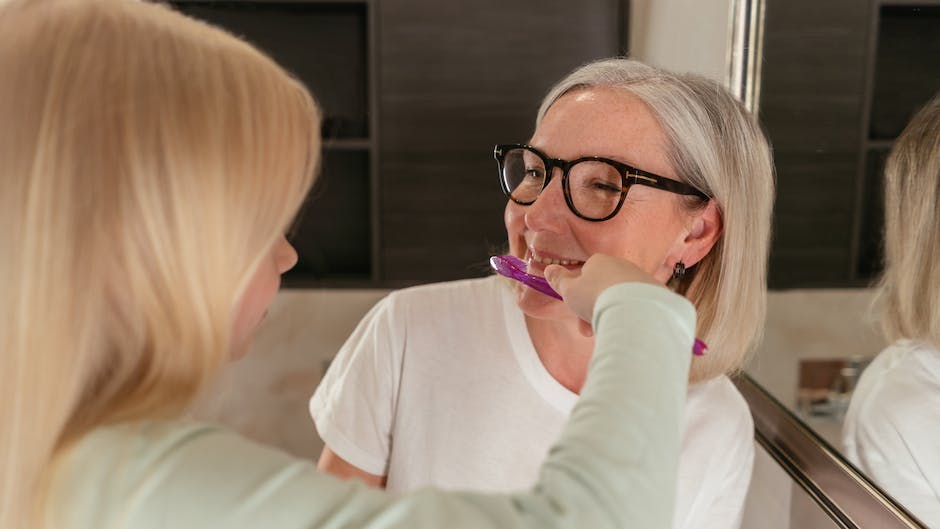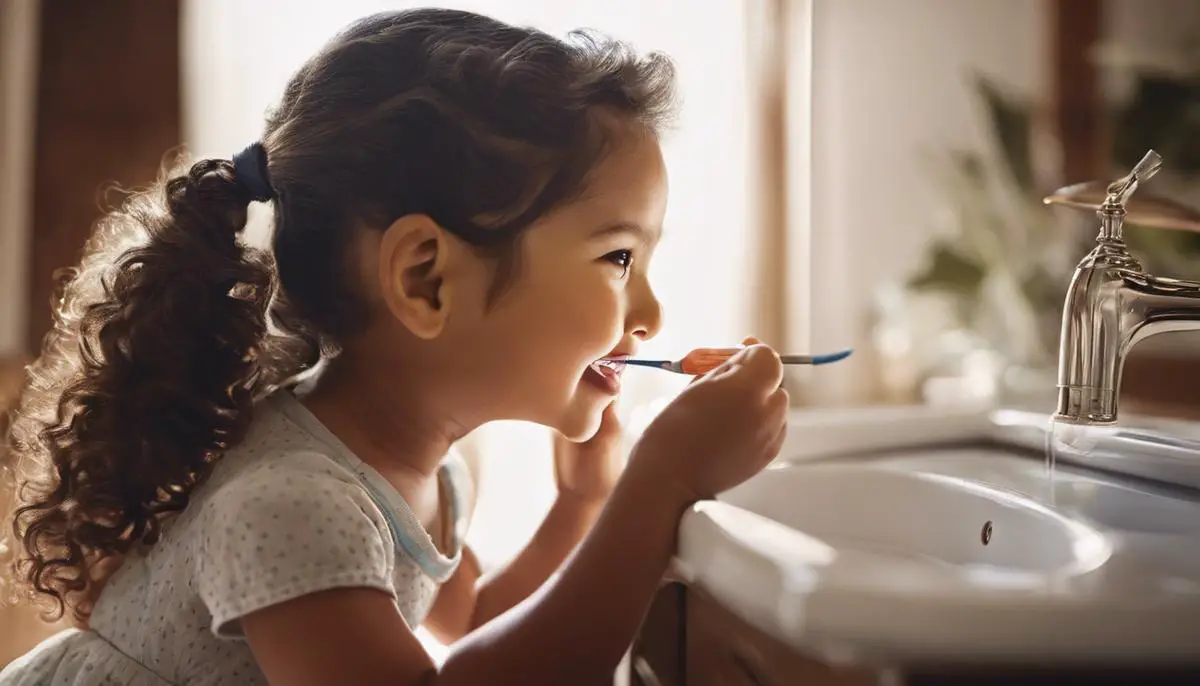Having healthy teeth and good oral habits are essential elements of overall health and well-being, more so during childhood when habits are being established and dental growth is ongoing. Imbibing pediatric dental care and regular hygiene practices like brushing and flossing can help prevent issues like cavities and promote robust dental growth.
While dental problems are not unusual in children, they can be quickly addressed and resolved with knowledge about the signs and the right preventative measures. A dental visit need not be a dreaded experience for children but can be turned into an enjoyable event.
The key to all this lies in the hands of parents and caregivers who can teach and instill these critical habits in their children from an early age.
Importance of Pediatric Dental Care
Growing up, we remember the exciting tug of our tooth fairy’s visit during those magical, younger years. This charming childhood tradition is a gentle nod toward the importance of prioritizing dental health as parents.
Establishing good oral hygiene habits from a young age is not just about spotting tooth fairies; it’s an essential aspect of a child’s overall health and well-being.
Why should we, as caring and dedicated parents, focus on early dental care? Read on as we explore the undeniable location where good dental care habits intersect with nurturing love and care.
First and foremost, we need to appreciate how primary teeth play an essential role during the early growth phase. Known as baby teeth, primary teeth assist in speech development, maintaining good nutrition by permitting a good diet, and saving space for the imminent adult teeth.
Besides, they boost a child’s self-esteem by improving their appearance. Let’s understand the importance of primary teeth, not just as placeholders, but as cornerstones for a lifelong smile.
Remember, early decay in primary teeth could inevitably lead to problems in developing permanent teeth. To point out further, cavities, also known as dental caries, are a form of tooth decay and are five times more common than asthma in children.
Alarmingly, cavities can stir a domino effect of damage, leading to infection, chewing difficulty, weight loss, speech problems, and even, in rare but severe cases, dangerous infections.
Therefore, attending to a child’s oral health from an early age keeps all these unwanted complications at bay. It paves the way for a stress-free childhood devoid of unnecessary discomfort and insecurity. Good dental care can be the bow on a package filled with overall health, nurturing care, and confident smiles.
Here’s a little secret: good oral health habits can serve as an excellent platform for teaching children about responsibility, hygiene, and long-term healthcare.
When children understand the significance of brushing and flossing through gentle encouragement, they learn the importance of self-care, discipline, and routine. So, throwing a toothbrush party before bedtime or creating crafts around a dental theme could be an enjoyable way of instilling these critical habits!
So, in a nutshell, dear parents, prioritizing early dental care is one wise act of love that would serve as bricks in your child’s strong foundation of health. Yes, our children won’t always be this young, but by implementing good oral care habits, their happy, healthy smiles will confidently echo into adulthood.
Remember, every adorable tooth-bearing grin is worth all the effort. After all, under each chuckling, rosy-faced child, there’s a tooth fairy disguised as loving and dedicated parents like us. Let’s keep those tooth fairies busy, for there’s nothing quite as stunning as our children’s healthy and vibrant smiles.

Common Dental Problems in Children
Parents, it’s no secret that caring for our little ones’ teeth is crucial. While we’ve already delved into the importance of primary teeth and the dangers of early decay, it’s just as vital to identify and understand the most common dental problems kids face. By getting knowledgeable on the subject, you can help your children maintain a healthy, beaming smile!
Baby Bottle Decay
First on our list is Baby Bottle Decay. It is a term you may have encountered, and for a good reason – it affects numerous children. It’s primarily due to the prolonged exposure of your child’s teeth to sugary drinks, often through their bedtime or naptime bottles.
How to overcome it? Start by reducing the number of sugary drinks and not letting them sip on them through the night.
Thumb Sucking
Next up is Thumb Sucking. While it offers comfort to little ones, prolonged thumb sucking – especially beyond the age of four – can lead to a range of issues. These can include crooked teeth and bite problems that may need orthodontic treatment in the future. Encouragement and positive reinforcement can slowly wean them off this habit.
Tongue Thrusting
Let’s also shed light on Tongue Thrusting. It’s a habit where a child pushes their tongue forward against their lips when swallowing. Over time, this can push the teeth out of alignment – a mouth guard or orthodontic treatment typically solves this issue.
Dental Injuries
Children, while full of boundless energy, tend to be prone to Dental Injuries due to accidents or sports. Protect those precious pearly whites using mouthguards, especially during high-impact sports or games!
Gingivitis
Lastly, let’s tackle Gingivitis. Yes, gum disease isn’t only an adult issue. Children, particularly adolescents, can also suffer from this red, swollen, and occasionally, bleeding gums condition. Regular brushing, flossing, and dental check-ups can prevent this worrisome issue.
It’s important to remember that no two children are the same, and dental challenges can vary. Regardless of the issue at hand, consistency in oral care routines can work wonders.
By understanding these dental problems and keeping a vigilant eye, you can help ensure that your child’s smile stays healthy and bright! Talk about the benefits of brushing and flossing, visit a dentist for regular check-ups, and make dental care as much a routine as bedtime stories.
Because as you all know, every little thing we do is a stepping stone to their future well-being. Together, let’s create a future filled with gleaming smiles and hearty laughs that echo the healthy, happy lives we’re crafting for our little ones.

Making Dental Visits Fun
Knowing what your child goes through when anticipating a pediatric dental care visit can be a lifesaver. Those strange machines, unfamiliar faces, and odd sounds are known to be intimidating to our little ones.
The question that keeps popping up in parenting forums and casual chats at the playground is – How can we make dental visits less daunting, even exciting for children? Rest assured, there are ways and we’ll navigate through this together.
Initiate soothing open-ended dialogues with your child to discuss their fears and answer queries about the dental procedures. Children are innately curious. By engaging in these discussions, they become more comfortable with the idea of dental visits, and this channels their fears into curiosity.
Let’s take this a step further. Books can work wonders to ease children’s fear on practically any topic and dental visits are no exception.
Several children’s books are centered around dental visits, explaining the protocols and benefits of proper oral care in a way that is engaging and understandable to children. Encouraging your child to read these can alleviate their apprehensions about dental visits.
Role-play with a toy dental kit is another fun way to prepare children for their visit to the dentist. Engage your little ones in imaginative play where they can examine their stuffed toys’ teeth, giving them a sense of control and familiarity about what occurs in the dentist’s office.
When scheduling an appointment, opt for a time when your child is rested and free from school or other activities. Doing so allows your child to resist the urge to rush through the process, therefore reducing their anxiety.
Children look up to their parents as role models. Taking your child along for your routine dental appointments, letting them observe the procedures firsthand, works wonders. Not only will they learn that it’s a standard part of maintaining health, but it also gives them a better grasp of what to expect when it’s their turn.
Pediatric dental clinics are designed to cater to children’s comfort. They are typically filled with vibrant colors, cartoon characters, and a play section. This creates a familiar environment for your child, reducing any feeling of intimidation.
Always choose a professional who specializes in pediatric dentistry for your child. Such professionals are experienced in dealing with children’s fears, making them more comfortable.
The calming distraction sure works well. Encourage your child to bring along a favorite toy to hold during the visit or let them wear headphones to listen to a popular audiobook. This will give a comforting familiarity amidst the new surroundings.
Rewarding your child after a successful visit to the dentist could also go a long way in making the experience less daunting. The promise of a healthy yet exciting treat like a movie outing or a fun activity will provide them with something to look forward to.
Incorporating these strategies will make dental visits a positive experience for your little one, setting them on a path to prioritizing their oral health even in their adult life. With every successful visit, their fear would be replaced with confidence – and isn’t that one of the most rewarding experiences parenting can give us?
Teaching Your Child Dental Hygiene
Teaching your children good oral hygiene habits not only ensures their bright, healthy smiles but also sets them up for a lifetime of oral health.
How parents accomplish this often comes down to understanding how to build these habits progressively, starting as early as infancy. There are a few great strategies parents can incorporate into their child’s routine, even before their first tooth erupts.
One effective approach is to start “brushing” your baby’s gums. Use a soft, moistened washcloth or a piece of gauze to gently clean your infant’s gums after feedings. This helps clear away harmful bacteria. As soon as that first tooth pops up – congratulations! It’s time to introduce a toothbrush. Choose a small, soft-bristled toothbrush and just a smear of fluoride toothpaste (about the size of a grain of rice).
There’s much to be said about making toothbrush time fun. Incorporate it into a game, sing a special toothbrush song, or use a cool timer to make brushing for at least two minutes exciting. Kids often enjoy electric or musical toothbrushes and fun-flavored toothpaste – there’s no harm in splurging a little on these items if they encourage good oral health habits.
In addition to brushing, teaching your child the proper way to floss is crucial. Kids can usually start flossing on their own around age six. But parents should supervise until around age ten to ensure they’re doing it correctly. Use floss that’s soft and flexible, so it’s gentle on their gums.
Good nutrition plays a huge role in oral health too. Encourage a healthy diet full of fruits, vegetables, and dairy products known for strengthening teeth. Limit sugary beverages and treats, and educate your children about the effect of sugar on teeth.
Make it a habit to finish meals with a drink of water to rinse out the mouth, especially if brushing isn’t feasible immediately.
Visits to the dentist shouldn’t be a dreaded affair. Keeping the conversation around these visits positive can help ease any anxieties. Reiterate that the dentist is a friend who helps us keep our teeth strong and healthy. Be candid about what they should expect during check-ups or procedures, using age-appropriate language.
Last but not least, children learn by example, so maintaining your oral health can have a big influence. Let your kids see you brushing and flossing regularly. Don’t hesitate to share that even adults must replace their toothbrush every three months, avoid overly sugary treats, and schedule regular dental check-ups.
Remember, the goal is to develop and nurture good oral hygiene habits in your children. Be patient, supportive, and persistent. Give them the tools they need for lifelong dental health, and they’ll have plenty to smile about for years to come.

Final Thoughts on Pediatric Dental Care
So, implementing good oral hygiene practices in children is more than just teaching them how to brush and floss. It’s about preparing them for lifelong health and wellness.
Acknowledging the importance of pediatric dental care, understanding common dental problems and how to prevent them, making dental visits a positive experience, and teaching proper dental hygiene can set up a strong foundation for their dental health in the future.
With the right approaches and early intervention, we can help ensure that our children adopt the best dental care routine right from their early years, setting them up for a lifetime of magnificent smiles.








